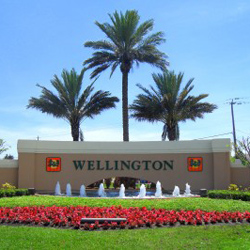BY PAUL GABA
The Village of Wellington has joined several other Palm Beach County communities in prohibiting conversion therapy within village boundaries. After a preliminary vote earlier this month, the ban was finalized in a split council vote Tuesday, June 27.
The American Psychological Association defines conversion therapy as psychotherapy aimed at eliminating homosexual desires. It has commonly been sought by parents seeking to “cure” offspring of being gay.
The APA has concluded that trying to change a person’s sexual orientation — which many studies have shown is genetic in nature — can cause depression, suicidal thoughts and substance abuse.
Council members voted 3-2 on Tuesday in favor of the ordinance, which prohibits state-licensed professionals, but not unlicensed youth counselors or religious leaders, from practicing conversion therapy on minors.
Although the Wellington ordinance now bans the practice by licensed health and medical professionals, under state law it cannot ban conversion therapy’s use by religious and other non-professional groups.
Vice Mayor John McGovern, Councilman Michael Napoleone and Councilwoman Tanya Siskind voted to support the ban. Mayor Anne Gerwig and Councilman Michael Drahos cast the two dissenting votes.
After encouraging fellow council members to work together and find common ground so they could approve the ordinance unanimously, Drahos flipped his previous vote in favor of the ban at its preliminary reading.
However, his vote in opposition “is not a ratification of conversion therapy,” Drahos said.
“I am personally opposed to any therapy dedicated with predetermined outcomes of a person’s sexual orientation,” he said. “At the end of the day, we should trust our medical professionals and parents’ judgments. This should not be construed as an anti-gay vote.”
Before the vote, Drahos proposed two language changes, both of which were rejected. The first would have included the APA’s position that therapy should take place “without imposing a specific sexual orientation identity outcome.” The second would have added “forced or coerced” to the definition.
The vote followed a public forum in which about a dozen residents voiced opposition to the ordinance, followed by an intense discussion among the five council members.
The Palm Beach County Human Rights Council has taken the initiative to get conversion therapy — also known as reparative therapy — banned at the local, county and state levels. Retired Judge Rand Hoch, president and founder of the PBCHRC, said his organization’s goal is to “protect children from something legally they cannot consent to.”
“We are not asking families to deprive a child from the ability to get help,” Hoch said. “What we object to is someone who says, through conversion therapy you can change your sexual orientation. We are objecting to someone saying that through therapy, we can change your sexuality.”
Dr. Julie Hamilton, a licensed marriage and family therapist and former president of the Alliance for Therapeutic Choice and Scientific Integrity, was among those who spoke against the ban. She questioned whether local communities have jurisdiction to oversee the private practice of physicians.
She urged the council to add the words “forced or coerced” to the ordinance language being discussed, to better focus the proposal.
“Conversion therapy is a made-up term,” Hamilton said. “We have been told that kids have been forced into change against their will. Licensed therapists don’t do things like that.”
Several residents who addressed the council argued that the ordinance is unenforceable due to doctor-patient privilege and that the village should not micro-manage what families choose to do in private, difficult situations.
There was also a push to let the state legislature take the lead, including from State Rep. Rick Roth (R-District 85). “I am very sensitive to home rule issues; where cities are trying to do their own ordinances in what some would call the scope of their authority,” he said. “I think everyone agrees you have a lot of responsibilities to serve citizens. If this passes, you will have to train your code enforcement officers, and there may be other issues.”
Roth urged the council to let the state legislature and the governor take action on the issue first. “The state legislature takes its role seriously,” he said.
But Napoleone argued that “a pre-emptive ban is a good thing. The true harms of conversion therapy have already been determined, and Wellington should lead. We shouldn’t wait until the state acts.”
“This doesn’t take away parental rights,” Siskind said. “It allows talk therapy, not conversion therapy. I side with every world health organization that says [conversion therapy] is harmful.”
McGovern said his vote was to protect those whose voices were not able to be heard at the council meeting.
“Wellington is a diverse, inclusive, safe community that strives to provide the best quality of life for its residents — most of all, its children,” McGovern said. “Allowing any child to be exposed to the critical health risks associated with sexual orientation change efforts, without any clear evidence that such change is even possible, is inconsistent with our community.”
Gerwig described the ordinance as “insulting to the parents of Wellington,” alleging that it takes away parental rights as written.
“I believe professionals follow professional standards, and can be disciplined if they violate those provisions,” she said. “Parents in Wellington are able to make decisions for their children. Without properly trained psychologists to hear these concerns, this may lead to a worst-case scenario.”
She also said it infringes upon the rights of the medical community.
“This ban, as written, does not allow therapists to apply their trade and help those who need help,” Gerwig said. “It’s akin to book burning.”








